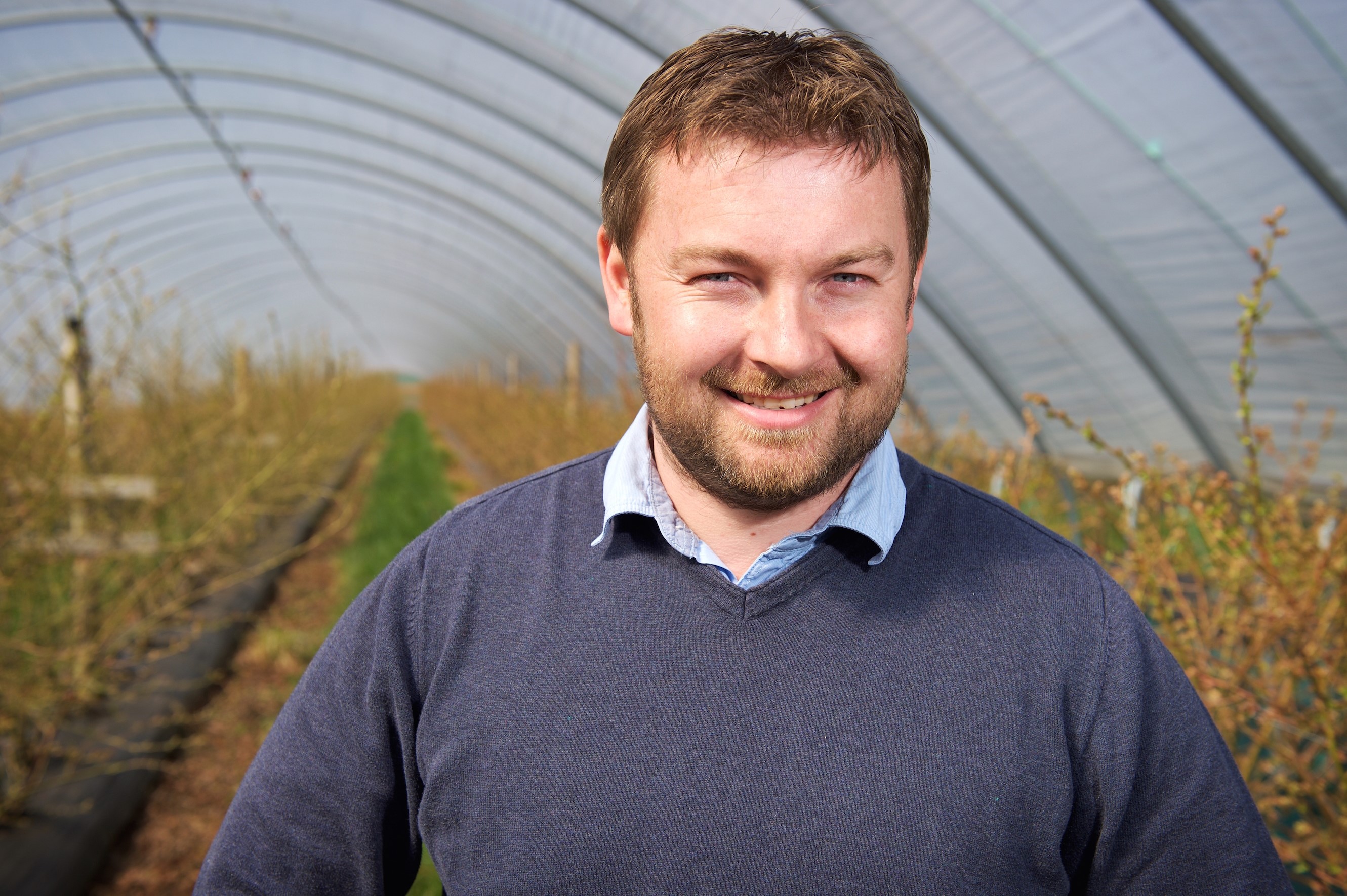Please click here to access the main AHDB website and other sectors.
Cutting-edge fruit sorting technology has led to rich pickings
Monday, 4 March 2019
“The industry needs to change because there just aren’t enough people able to do the work”

It is no secret that labour availability has become an increasingly pressing issue for growers across the UK. In order to address the issue somewhat, one Scottish fruit grower has invested over a million pounds in fruit sorting technology to reduce his reliance on labour.
Ross Mitchell, whose family has run Castleton Farm in Aberdeenshire since 1992, took the decision to invest due to his growing concern about the availability of labour, which he identified as an issue even before the EU referendum in 2016.
“Every year we need to recruit 900 temporary staff members to get through the season, mainly pickers but also in the packing house, and year on year it has been harder to get staff in to do the job.
“Brexit hasn’t caused this issue, although the devaluation of the pound has made it less attractive to come here. The industry needs to change, to become less reliant on such a large labour pool, because there just aren’t enough people able to do the work.”
With that in mind, Ross decided to look into alternative technologies which could allow his business to expand their blueberry production without needing to increase their staff numbers.
“We currently farm 321 acres of soft fruit, including raspberries, strawberries, blueberries and cherries, but it’s the blueberries that we are expanding,” Ross explains. “Not even 20% of UK-consumed blueberries are grown here and the market is growing at 10% a year, so it makes sense to increase our acreage in that area.”
Ross has invested in a large-scale optical grader and sorter, one of just three currently working in the UK, which can sort blueberries and cherries into a range of grades through taking over 40 pictures of each individual fruit in just one second.
While Ross still requires staff to pick the fruit by hand they are now at least 30% faster as they no longer have to grade the fruit while in the field. Instead the machine, which can assess two tonnes of fruit every hour, filters the specimens into different specifications through judging size, softness, colour and internal and external scarring.
“We still need around 500 staff harvesting in the fields at any one time,” Ross says, “but with our expanding acres we would have needed 50 extra this year, so we have made a definite saving in staff costs. It’s been a really worthwhile investment, and I think we will see more of these in the UK over time as the price decreases.”
Looking ahead Ross hopes the seasonal workers scheme pilot will be successful as he sees that as the best way forward for the industry in the short-term.
“It will be controlled migration rather than immigration so it should be a win-win for the industry and the workers involved.”
While access to labour is still the priority for Castleton Farm in the short-term, in the longer term Ross believes new technology and automation will drive the industry forward – but that they can’t expect all the change to come from elsewhere.
“We will need to change to adapt to the new technology which is coming in 15 or 20 years,” Ross says. “There is an amazing amount of interesting research going on into automated harvesting and picking, but we might need to adapt our growing systems to fit in with the technology, rather than vice versa.
“AHDB has a key role to play in that future, in testing our new technology, identifying what works, and getting that information out to growers.”

